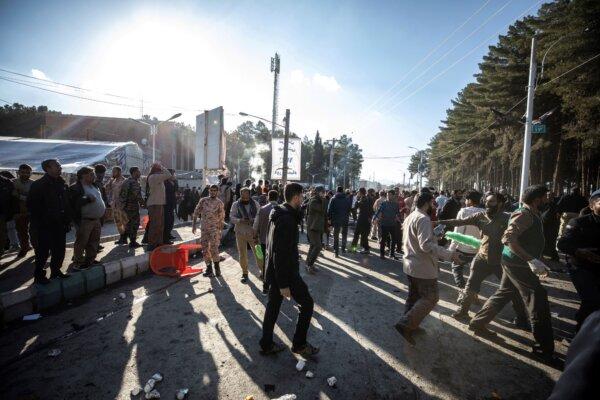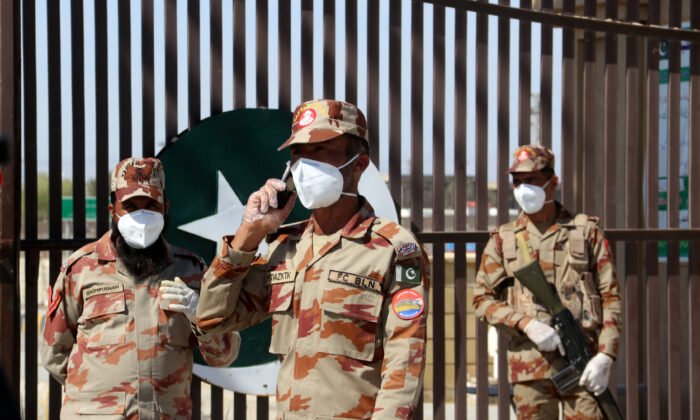Growing Destabilization in West Asia as Iran and Pakistan Trade Strikes Sparks Expert Warnings
The volatile situation is complicated by Pakistan and Iran’s border mistrust, the Israeli–Hamas conflict, and China’s investment in the region.
Iranian missiles hit the terror bases of the Jaish al-Adl militant group inside Pakistan on Tuesday. Pakistan retaliated by striking inside Iranian territory early Thursday, raising concerns of a major inflammation of conflict in West Asia.
Experts have called the attacks geopolitical messaging from Iran threatening a wider weakening of regional security amidst the Israel-Hamas conflict.
“Iran is delivering a message—that if Israel strikes they can do a lot of regional destabilization,” said Abhijit Iyer-Mitra, a senior fellow at the New Delhi-based Institute of Peace and Conflict Studies.
However, Mr. Iyer-Mitra termed it a “panic message” and “not coherent,” and questioned who the message was directed toward. Iran also attacked what it termed an Israel spy base near the U.S. consulate in Erbil in northern Iraq, as well as “anti-Iran terror groups in Syria” on Monday. This was followed by the attack inside Pakistan in which two children were killed and three were injured, according to media reports.
“So this is mostly a messaging gambit. I think it’s very easy to do in a sense because they don’t want to use Hezbollah to hit Israel directly,” said Mr. Iyer-Mitra. “It’s easy for them to retaliate against neighbors knowing they can manage escalation as opposed to using Hezbollah to attack Israel knowing full well that the Israeli retaliation will be unmanageable.”
Hamid Behrami, a Scotland-based Middle East expert of Iranian origin, told The Epoch Times that Iran’s recent attacks against Erbil, Syria, and Pakistan are linked to its current perception of threat to its national security and thus to deterrence, in this context.
“Iran was almost silent in the last three months [of the Gaza war]. The Kerman attack pushed Tehran to act in order to balance deterrence. However, Jaish-al Adl operations in Iran and IRGC [Islamic Revolutionary Guard Corps] response have a long history and can not be connected to the Hamas–Israel conflict. Threatening events and deterrence pushed Iran to do all three attacks at the same time,” said Mr. Behrami.
Iran’s southeastern city of Kerman was rattled with suicide bombings on Jan. 3, killing 100 people and injuring 284. Tehran vowed revenge for the attack, for which Islamic State claimed responsibility.

Who Is Retaliating Against Whom?
Pakistan and Iran have a decade-long history of border mistrust and launching attacks against each other. Despite complex regional geopolitics vis-a-vis the Israel-Hamas conflict, experts believe the recent back-and-forth attacks are unique to Pakistan–Iran relations.
…




